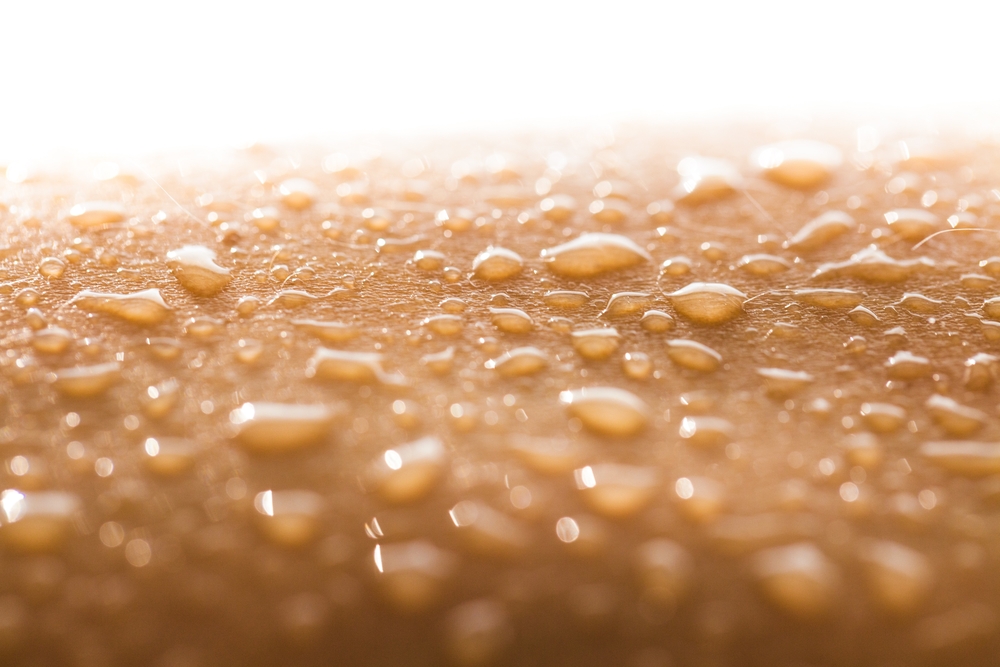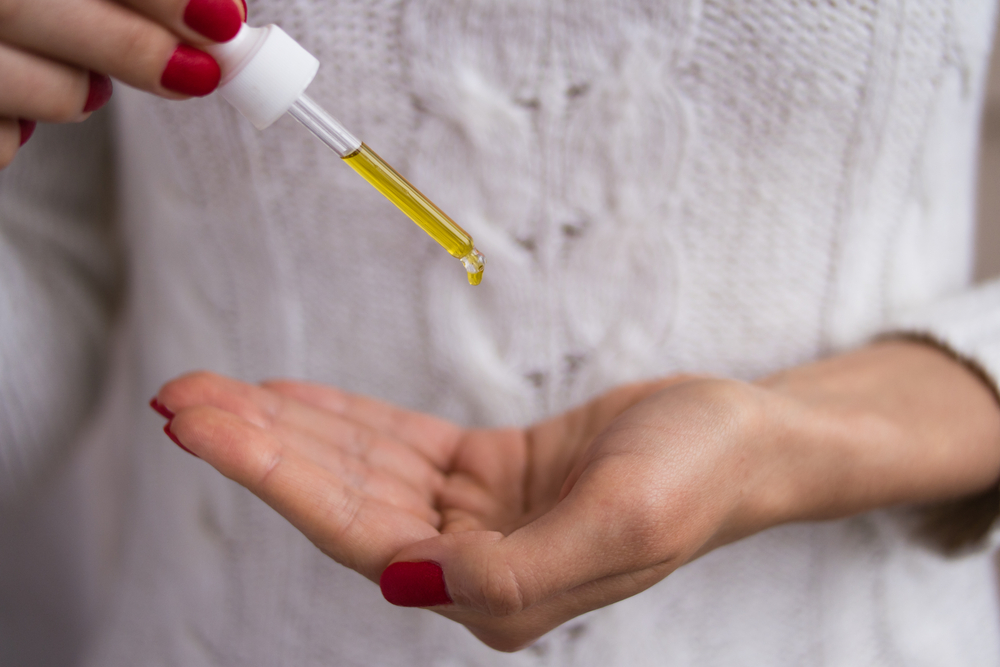- Hemp oil is rich in omega fatty acids, giving it anti-inflammatory and anti-bacterial properties which can help prevent and soothe eczema flare-ups.
- It is also believed that products containing hemp seed oil can provide relief for psoriasis, acne, and other common skin conditions.
- The legality of purchasing hemp-derived products is still murky; check your state laws to determine if it’s allowed where you live.n
With regulations loosening up on medicinal marijuana, questions have begun to emerge about whether or not the once-barred plant can bring any cosmetic benefits to the table.
Like marijuana, hemp is a member of the cannabis family; however, hemp has a negligible amount of THC, the psychoactive compound in marijuana. Proponents claim that oil derived from hemp seed can be used to effectively treat eczema, psoriasis, acne, and other skin conditions. But does it work?
In this article, we’ll discuss everything there is to know about hemp oil for skin, especially when it comes to treating eczema.
What is hemp oil?
“Hemp oil is derived from pressing hemp seeds to create the oil, which is applied as a topical agent to the skin,” says Dr. Robin Evans of Southern Connecticut Dermatology in Stamford, CT. “It can be a therapeutic option for some conditions, either alone or in combination with prescription topical products.”
Hemp oil has high concentrations of fatty acids, including alpha-linolenic acid and linoleic acid, which are known to provide skin-enhancing benefits. (Note that linoleic acids can sometimes be derived from nuts or seeds that could cause allergies.)
Its 3:1 ratio of omega-6 to omega-3 — a balance that matches the requirements of the human body — makes hemp oil particularly ideal for use in beauty products, including soaps, lotions, detergents, and hair care. This balance is not found in other oils, such as fish oil or olive oil.
“Omega-6 and omega-3 have anti-inflammatory properties and therefore can be beneficial for psoriasis, eczema, and other inflammatory skin conditions,” Dr. Evans confirms.
Other natural, cannabis-based oils — such as cannabidiol (CBD), which can be derived from the resin of the hemp plant — are also known to have skin soothing properties.
Is it legal?
The popularity of natural, vegan-friendly skin products is on the rise, and hemp oil is leading the trend. But before we get too deep, let’s answer the biggest question on everyone’s mind: Is hemp oil legal?
Even though using this oil does not produce any psychoactive effects — no, it won’t make you “high” — it still falls into a legal gray area and is banned in some states.
The U.S. Drug Enforcement Administration (DEA) has said that all hemp products are illegal by federal standards, but the agency admits that it is not focused on enforcing those laws or seizing most hemp products.
Purchasing hemp-derived products is still complicated, and might not be entirely legal — at least for the time being. Unless you live in a state where marijuana is legal, it’s best to consult state laws to determine whether or not hemp-based products can be safely obtained.
The benefits of hemp oil for the skin
The National Eczema Association notes that the antimicrobial, anti-inflammatory, and anti-itch qualities of cannabis-based products can provide relief to some eczema sufferers.
According to the Association, another major benefit of hemp oil is its ability to help regulate and manage Staphylococcus aureus, a bacteria that’s present in eczema sufferers and causes large pimples that often exacerbate the condition. Treatments that can help control the proliferation of this bacteria have been known to provide relief from itchy skin and quell flare-ups.
Because of the regulatory market and questionable legality of hemp-based products, doctors and researchers who want to study these products struggle for funding and approval, and more studies are needed to show efficacy of hemp oil in eczema.
Is it safe?
In general, hemp oil is safe for topical application and there are no indications of any long-term risks associated with consuming or applying it regularly. However, if you have particularly dry skin, test any new product in a small area to ensure that you’re not allergic to it. Some mild irritation may occur.
Although no significant side effects of hemp oil have been described, some people have reported mild fatigue, diarrhea, and changes in appetite and weight while using the oil.
Note that there are no studies proving the safety of hemp oil in children, so it isn’t recommended as a skin treatment for minors.
How to use hemp oil for eczema
The best way to use this kind of oil to treat skin-related medical conditions is to apply it directly to the affected area. Pure forms of the oil are available, as are products that contain the oil such as soaps, lotions, serums, and creams.
If you prefer, you can also make your own topical products at home. Pair the hemp oil with similarly soothing ingredients, such as coconut oil, aloe vera, or essential oils known to boost and purify the skin. Some people also ingest the oil, but the effects of that approach are not clear.
You will get all of the known benefits of hemp oil by applying it directly to your skin and leaving it there for one to two minutes. After your skin has absorbed the nutrients, gently wash it away with warm water.
If you suffer from eczema or any other serious condition, be sure to talk to your dermatologist about finding the best hemp-based products for your particular skin type. As you know, many ingredients can worsen eczema or trigger flare-ups, so exercise caution.
The bottom line
So should you go out and buy a bunch of hemp plants to replace your regular eczema regimen? The bottom line is this: Hemp oil, and other cannabis-based products such as CBD oil, show promise for eczema therapy, and might even bring some relief for sufferers of other dry skin conditions.
But, for now, it shouldn’t be used as a substitute for your prescription medications. We anticipate hearing more about these treatments in the coming years.
» To find out more about hemp oil’s benefits, contact a board-certified dermatologist near you or our medical review team.









